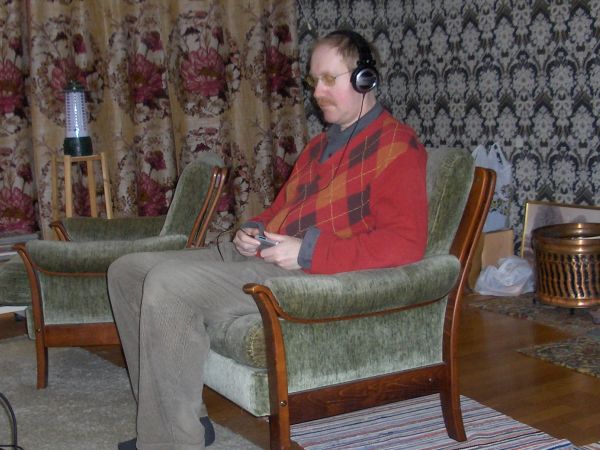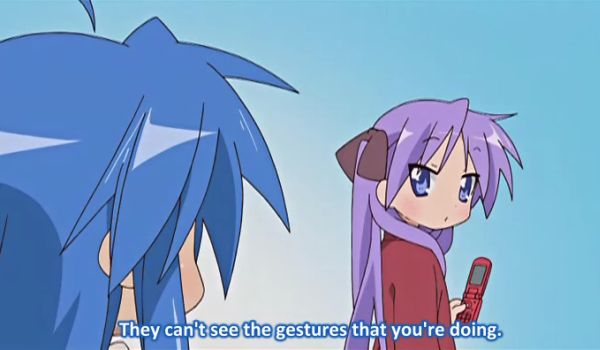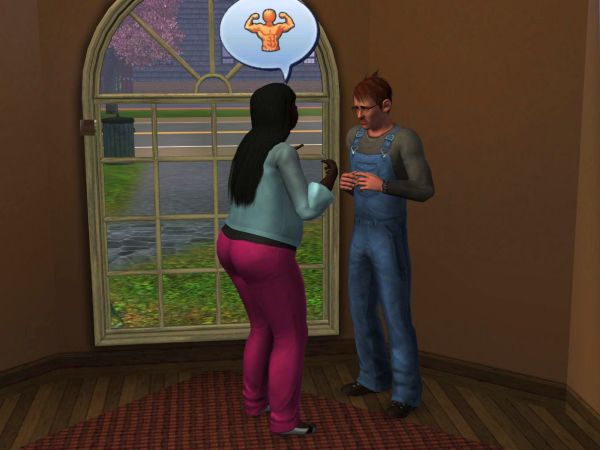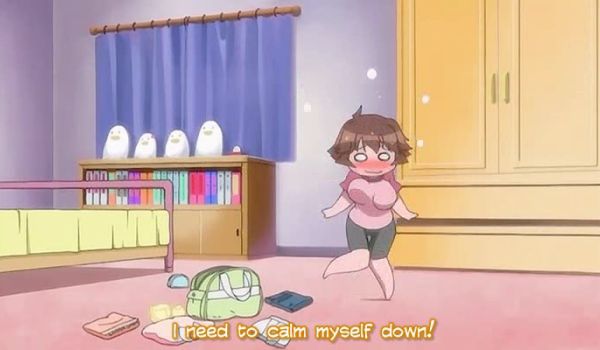When I was little, I once dreamed that everyone else was eating cake and I didn’t get any of it. Â I was grumpy for hours after I woke up. Â As an adult, you can probably have all the cake you want, but perhaps you no longer can have all the sleep you want. Â And grumpiness is the least of the consequences.
Sleep disorders are not just a “nightmare” for those who suffer from them. They also cost society much in lost workdays. Â And not only those days when you are too tired to work, having tossed and turned all night and finally falling asleep when you were about to go to work. I have been there and you have my sympathy, but unfortunately your boss may be less sympathetic. It is common to come up with some more dignified excuse, which already distorts the numbers. And yet even this is only the top of the iceberg.
Lack of sleep, especially deep sleep, opens the body to a host of adverse effects further down the road. Â Slow-wave sleep strengthens the immune system and helps rebuild muscles. Â So a great number of sick days could have been avoided if you met the environment with a well-rested body. Â And yet even this may not be the worst part. Â Most of us don’t get sick every day or even every week, so a few days off is just part of what life throws our way. Â But an increasing number of people are unable to keep a full job at all, or even a job at all, even though they want to. Â And the truth is that mental problems is by far the fastest growing category here. Today’s information age has no room for those who barely can keep their mind together on an ordinary day, much less fill it with complex models of abstract information. Without sufficient sleep (and of sufficient quality) it is hard to remain alert and clearheaded enough for the workplace of tomorrow.
Indeed, sleep disturbances are among the first signs of major mental illnesses.  But they may be more than mere symptoms:  There are studies where healthy volunteers have been kept from dreaming for several days.  They reacted with loss of concentration, then changes in behavior  and attitude, and eventually hallucinations.  In these otherwise healthy people, a good night’s sleep restored their mental health.  But not all people get a good night’s sleep.
But knowing all this will probably cause you to worry even more, and so sleep even less! Â Have I come to torment you before the time? Â Hardly! Â There are some good news, except they are not really new at all. On the contrary, some of them are approximately as old as civilization. Although some progress has also been made in recent years. Perk up your ears, you can sleep later!
“Meditation is not medication.” Â This simple fact seems lost on some of those who arrive at places like the Project Meditation Forum. It is common these days to want a quick fix, and seek it out only when things don’t work anymore the old way. Â Unfortunately, this is likely to cause disappointment and more frustration. Â The effect of meditation is far more subtle, but it is still a solution in the long run.
A number of people find that their sleep becomes healthier after they have taken up the practice of meditation. Â Stilling the waves of the mind, the carousel of thoughts and feelings no longer whirl through their heads when that head hits the pillow. Â More prosaically, those whirling thoughts will show up when you try to meditate as well. Â You will learn to watch them with detachment rather than hate them, fear them or repress them. Â You will find that in the eye of the storm there is a calm center, and although it may take time to get settled there, you will find it gradually easier as time passes. Â Unfortunately, by “time passes” we are talking months and years rather than this weekend. Â Still, if you don’t have some terminal disease now, you will probably want next year to have done the right thing this year! Â It is not like you do this for a stranger, but for your future self.
There are ways to speed up the process of meditation, or rather parts of it, with modern technology. Â But first let us have a look at traditional meditation and how it interacts with sleep.
As I mentioned, many people will sleep better as soon as the turmoil inside starts to calm down.  But even if your sleep disturbances are physical and incurable, all is not lost!  People who meditate need less sleep too. In the beginning they may be able to get up half an hour earlier and meditate for half an hour, which seems a pretty tame exchange. But gurus and sages who have meditated for decades, can go with extremely little sleep and suffer no ill effects.  This does not happen overnight either:  The longer you keep at it, the greater the benefit. There are very good reasons for this.
During sleep we use a different set of brainwaves from those we use when awake. Â In everyday life, we mostly use beta waves, which are small and irregular but well suited for the constantly shifting attention of everyday life. Â When we calm down and relax, we shift to alpha waves, which are slower but more regular. Â On the road to falling asleep, these waves replace the beta waves, and eventually get mixed with the even slower theta waves. These take up by far most of our sleep time, especially as we grow older. Â In the beginning of the night we also spend some time in delta (or slow-wave) sleep, which has even far larger and slower brain waves. Â It is during this sleep phase that the body releases human growth hormone. Â In adults this hormone mostly just repairs the body you already have (although nose, ears and sometimes hands and feet very slowly continue to grow even in adult life. It is worth it though.) Â During the last part of the night, we instead spend more and more time in REM sleep, with intense dreams. The brainwaves here are much like in waking life. This sleep phase is essential to the mind but somewhat exhausting to the body.
As  we grow older, the pattern changes.  Deep, dreamless sleep is the first to fade. In many elderly several night can pass without any slow-wave sleep whatsoever. This is not only bad news for the immune system and muscles, but also seems to have a negative impact on learning.  Theta sleep expands to take the place of delta, but also dreamsleep suffers: In many cases, when the beta waves begin, instead of dreaming the elderly will simply wake up. They are not at all finished with their sleep for the night, but what are they to do?  The body reacts to REM (dreamsleep) by increasing heart rate and blood pressure.  If you wake up at this time, chances are that you don’t feel much like going back to sleep for a while, even if you are tired.
When you learn to meditate, at first you will spend the time in alpha waves. Â That is actually a best-case scenario, because beginners are interrupted by beta a lot. Â But time helps with this. Being able to enter alpha waves at will, you can fall asleep more easily. Â But of course meditation time is not meant to be spent sleeping. Â Rather, meditation causes an expansion of awareness. Â With years of practice, you will be able to reach theta waves when you meditate. These deeper, slower waves are normally only active during sleep, but the guru or sage or advanced monk can enter them at will.
Now we remember that theta waves is where we spend most of our sleep, and particularly as adults and beyond. Â So having spent hours in this state while conscious, there is no reason why these people should do it all over again while asleep. Â Meditation itself is a rather pleasurable activity (although not at all exciting) so it is only natural that for those skilled enough, meditation gradually eats up sleep time. Â Although there will always be some left. Probably. But we’re talking a couple hours here for old gurus. Â That should make up for pretty much any sleep problems you may have.
Unfortunately, you are probably not a guru. Â Well, there are some of them out there, but they probably don’t read this. Â So what about the rest? Â Well, we could get started with meditation without waiting overlong. Â Also, thanks to the wonders of modern technology, we could speed up reaching the deeper brainwaves. This is easily done through brainwave entrainment, which I have written about occasionally in the past. Like last week.
You can buy elaborate soundtracks with lots of explanation and support. Â I’m a bit of a fan of LifeFlow, from Project Meditation. Â This system is meant to work with meditation, and gradually introduces deeper and slower brain waves over a period of 10 months. That’s a lot of time (and some money) but it still beats decades.
I have also used Holosync, from Centerpointe Research Institute. Â To be honest, I think they have researched marketing more than brainwave entrainment for the last pretty many years, but they do have a tried and true formula which thousands of people have been willing to pay a substantial amount to continue using for several years. Â So it may be worth looking into. In any case, they have a free sample CD. Â It is mostly sales pitch, but there is about 10 minutes of pretty good delta entrainment in the middle (at the end of the first track). Â That may not sound like much, especially when it takes a few minutes to get the brain entrained (especially the first times). Â But remember that there are elderly people who go several nights in a row without delta at all. Â So it may be worth the time. Not to mention the price, since it is a free demo.
Or you could download free software and make your own. Some research required. Gnaural is available for several platforms, including Windows and Linux. Certified geeky.
Anyway, to sum it up: Â Meditation can replace sleep to a great extent and is generally a pleasant activity (or rather passivity) once you get the hang of it. Â If there is just no way you can sleep without eating toxic stuff, you may give it a try. Â It will take time, but you are just tossing and turning anyway, so why not use that time? Â Works for me.










